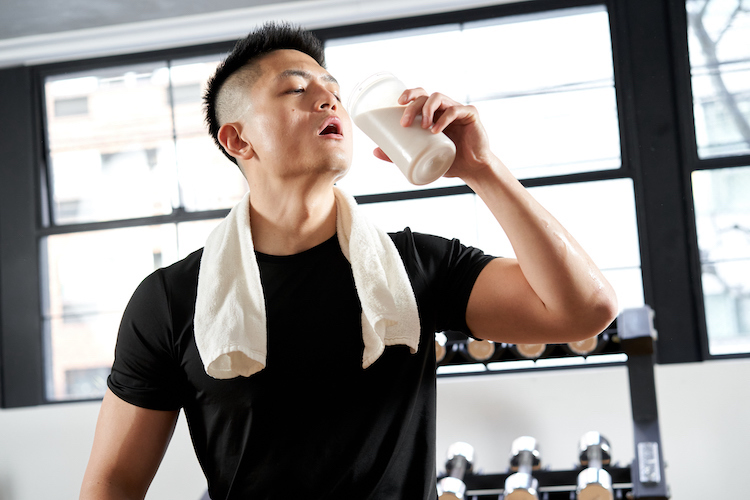
The dairy community has touted the benefits of chocolate milk as a rehydration beverage after exercise for many years, but milk is also a good choice to keep the body hydrated for daily activities. That’s because of its nutrient density.
“Ingested drinks with a high energy content, whether in the form of carbohydrate, fat, protein, or alcohol, will empty from the stomach more slowly than energy-free drinks,” wrote the authors of a 2015 study published in The American Journal of Clinical Nutrition. “This effect has the potential to contribute to the retention of ingested fluids within the body water space.” Of course, milk contains a high level of protein.
In that experiment, researchers from three different universities in the United Kingdom studied how drinking three of 12 different beverages, ranging from whole fat and skim milk to coffee, orange juice, tea, and more, affected the body’s fluid retention compared to drinking still water. Whole milk had the greatest energy density of the beverages tested, followed by orange juice, lager, cola, then skim milk.
One, two, three, and four hours after consumption, whole and skim milk drinkers had a greater fluid balance than after drinking the still water. The only other beverages that resulted in higher fluid balance than water were an oral rehydration solution and, for part of the time, orange juice. High energy content was generally associated with what the researchers termed a high beverage hydration index (BHI). Even when accounting for the different water contents of the drinks, both whole and skim milk ranked the highest in BHI.
Proper hydration is critical not only in times of high temperatures, but to generally maintain both physical and mental function. The researchers also note that adequate hydration may be associated with less risk of a range of disorders to the body, such as in the circulatory, gastrointestinal, and nervous systems. Milk’s hydration abilities add one more reason to reach for a glass to power your day.








